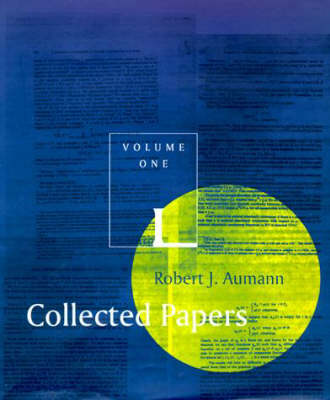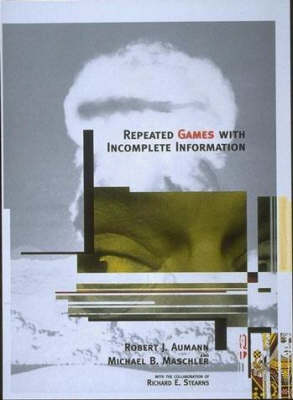The MIT Press
2 total works
Robert Aumann's groundbreaking career in game theory has spanned over 35 years. These two volumes provide convenient access to all of his major research--from his doctoral dissertation in 1956 to papers as recent as January 1995. Threaded through all of Aumann's work (symbolized in his thesis on knots) is the study of relationships between different ideas, between different phenomena, and between ideas and phenomena. "When you look closely at one scientific idea," writes Aumann, "you find it hitched to all others. It is these hitches that I have tried to study." The papers are organized in several categories: general, knot theory, decision theory (utility and subjective probability), strategic games, coalitional games, and mathematical methods. Aumann has written an introduction to each of these groups that briefly describes the content and background of each paper, including the motivation and the research process, and relates it to other work in the collection and to work by others. There is also a citation index that allows readers to trace the considerable body of literature which cites Aumann's own work.
Repeated Games with Incomplete Information
by Robert J Aumann and Micheal B. Maschler
Published 16 May 1995
During the height of the Cold War, between 1965 and 1968, Robert Aumann, Michael Maschler, and Richard Stearns collaborated on research on the dynamics of arms control negotiations that has since become foundational to work on repeated games. These five seminal papers are collected here for the first time, with the addition of "postscripts" describing many of the developments since the papers were written. The basic model studied throughout the book is one in which players ignorant about the game being played must learn what they can from the actions of the others.The original work, done under contract to the United States Arms Control and Disarmament Agency, was intended to tackle the gradual disarmament problem, in which neither player knew what his own payoff would be for any given agreement, because of uncertainty about the other side's arsenal and weapons production technology. But the research soon became much more generalized, covering information concealment and revelation, signaling and learning, and related ideas in any repeated competitive situation.The first four chapters of the book treat the competitive zero-sum side of the theory of repeated games.
Chapter five takes up cooperative phenomena where one player may want to signal information to another. An extensive bibliography covers all items mentioned in the main text, in the postscripts, and in the introduction. The bibliography also includes a compilation of published papers and books that refer to the original reports.
Chapter five takes up cooperative phenomena where one player may want to signal information to another. An extensive bibliography covers all items mentioned in the main text, in the postscripts, and in the introduction. The bibliography also includes a compilation of published papers and books that refer to the original reports.

